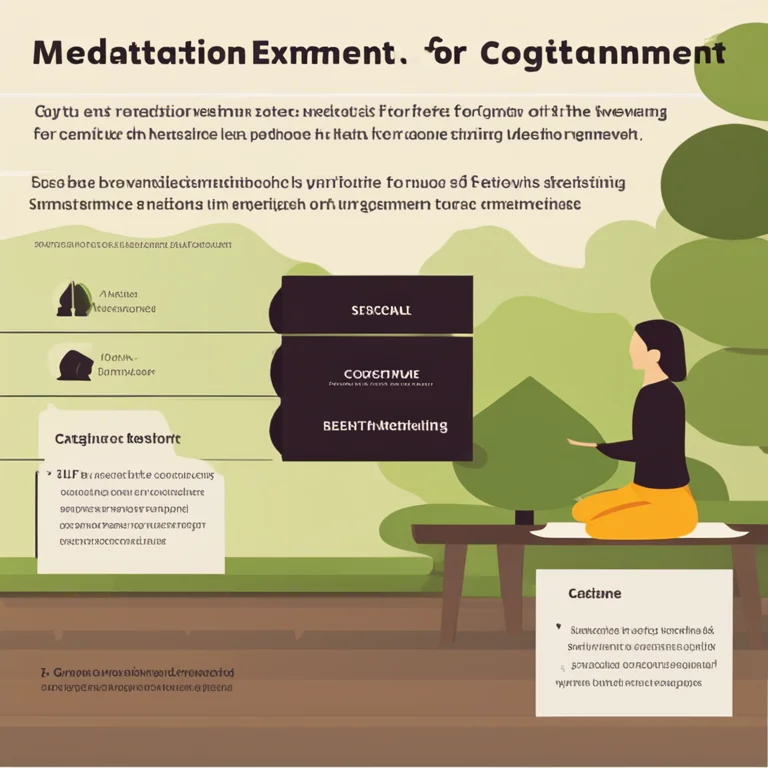
The Mind-Boosting Powers of Meditation
Discover how meditation can enhance cognitive function and potentially increase intelligence in our in-depth exploration.
article by Hina Kurosawa
Meditation and Mental Expansion
Meditation has long been heralded for its calming and restorative powers, but recent research suggests it might also contribute to cognitive enhancement. The practice, which can be traced back thousands of years, involves various techniques designed to promote relaxation, build internal energy, and develop compassion, love, patience, generosity, and forgiveness. Today, scientists are uncovering the potential intellectual benefits of regular meditation, thereby drawing the attention of those seeking to improve their mental acuity.

Connecting Mindfulness and Intelligence
A key type of meditation, mindfulness, has been shown to impact brain function and structure. Mindfulness encourages practitioners to focus on the present moment, non-judgmentally. This process has been linked to improvements in working memory, cognitive flexibility, and overall brain performance, elements associated with intelligence. As it turns out, engaging in meditation might just train the brain in ways that support smarter thinking and enhanced problem-solving abilities.

Neuroplasticity and Cognitive Gains
Neuroplasticity, the brain's ability to reorganize itself by forming new neural connections, is central to learning and intelligence. Meditation stimulates this adaptability by fostering the growth of new brain cells and pathways, a phenomenon backed by neuroimaging studies. These studies reveal thicker cortical walls in meditators, which is associated with an increased gray matter and suggest that their brains age more slowly, thus preserving cognitive functions vital to intelligence.

Evidence from Scientific Studies
Research conducted over the past decade indicates that meditation can lead to measurable gains in intelligence-related areas. For instance, a 2024 study published in the "Journal of Cognitive Enhancement" presented evidence that long-term meditation correlates with an uptick in IQ scores. Although the IQ boost was modest, the findings support the proposition that consistent meditation practice could enhance one's cognitive repertoire.

Integrating Meditation into Daily Life
Adopting a meditation practice doesn't require intense lifestyle changes. Many find that just 10-20 minutes a day can yield significant benefits. Meditation apps and online guides, which continue to grow in popularity and sophistication, offer a myriad of options for those seeking to embrace this practice. The key is consistency and patience, as the intellectual benefits of meditation accumulate over time.
Considerations and Future Outlook
It's important to note that meditation is not a quick fix nor a definitive ‘smart pill’. The journey to increased intelligence is multifaceted and personalized. However, the growing body of evidence suggesting a positive link between meditation and cognitive enhancement cannot be ignored. A 2025 forecast by the "Global Institute of Cognitive Research" predicts that meditation will become increasingly mainstream in educational and professional development programs due to its potential to boost mental performance.
Published: 1/9/2024
Modified: 1/9/2024
More predictions
Come back here soon to learn more about yourself and your future


The Harmony of Meditation & Sleep
Discover how meditation enhances sleep quality and overall well-being through mindful practices and relaxation techniques.


Mindful Rest: Integrating Meditation & Sleep for Well-being
Discover the synergy of meditation and sleep in enhancing mental, emotional, and physical health. This article delves into practices that combine these powerful restoration tools.


Retreat Into Serenity: A Guide to Meditation Getaways
Discover the transformative power of meditation retreats and how they can rejuvenate your mind, body, and soul.